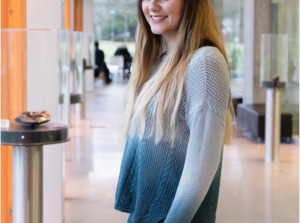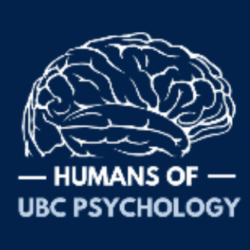
“You mentioned that you think UBC could improve its approach to supporting mental health. Can you elaborate?”
“Here’s one example of what I think their overall approach tends to be: they put up signs that said, in giant letters, SUICIDE AWARENESS, with *tiny*, tiny links at the bottom. So everyone was just going around seeing the word ‘suicide’ and then not getting the resources.”
“Instead of the message, ‘we’re here to help’?”
“Exactly—I think everyone’s aware of it. We’ve had some really bad events, like that student that jumped off the crane. Obviously that signals something. … I think UBC is also one of the few universities now that doesn’t have a reading break in the first semester. Which, I mean, part of the reason they put that in is for mental health for students. So I think there’s more practical things they could do, and I think there’s a lot of relying on students to carry a message that should be carried by the institution. And also I have friends that have had some pretty bad experiences in UBC counselling. … It’s no one person’s fault, it’s just kind of a systemic thing. I’m taking a minor in gender, race, sexuality and social justice, so, we look at systemic issues which are very, very relevant to today.”
“What’s something you’ve learned or now see differently because of your studies in GRSJ?”
“I think a really big issue is moral superiority as tied to oppression. And it’s something that I’ve been sort of struggling with myself—it’s the view that the more oppressed you are, the better the person you are. It’s such a complicated issue because you want to support people in bad positions, while also supporting the idea of growth and learning. Just because someone belongs to a group, it doesn’t mean that they’re perfect people. I was part of Pride two years ago, but we had to deal with that a lot there too. There would be people that would go, ‘well, I’m gay so I can’t be racist,’ and it just doesn’t happen like that.”
